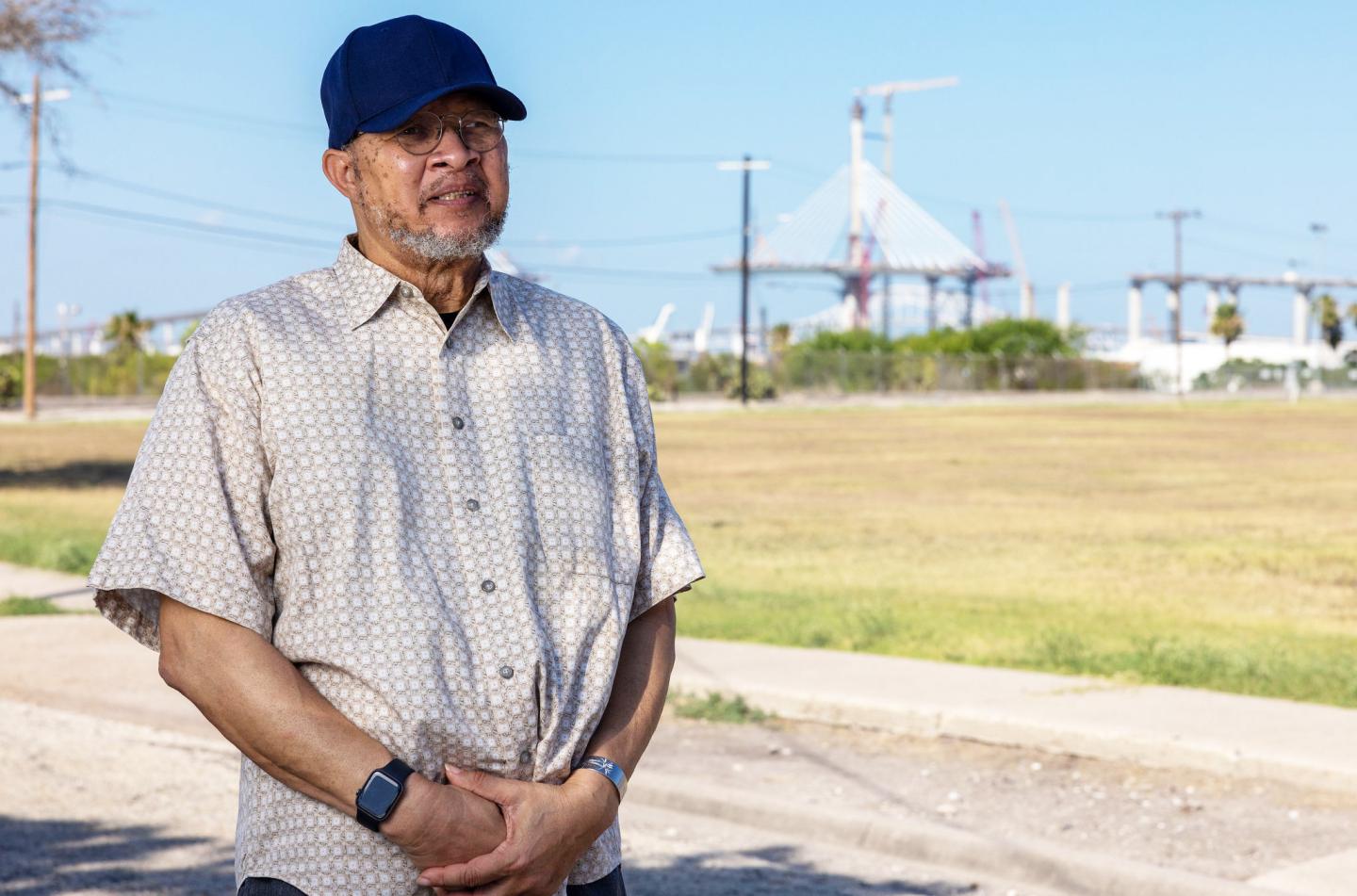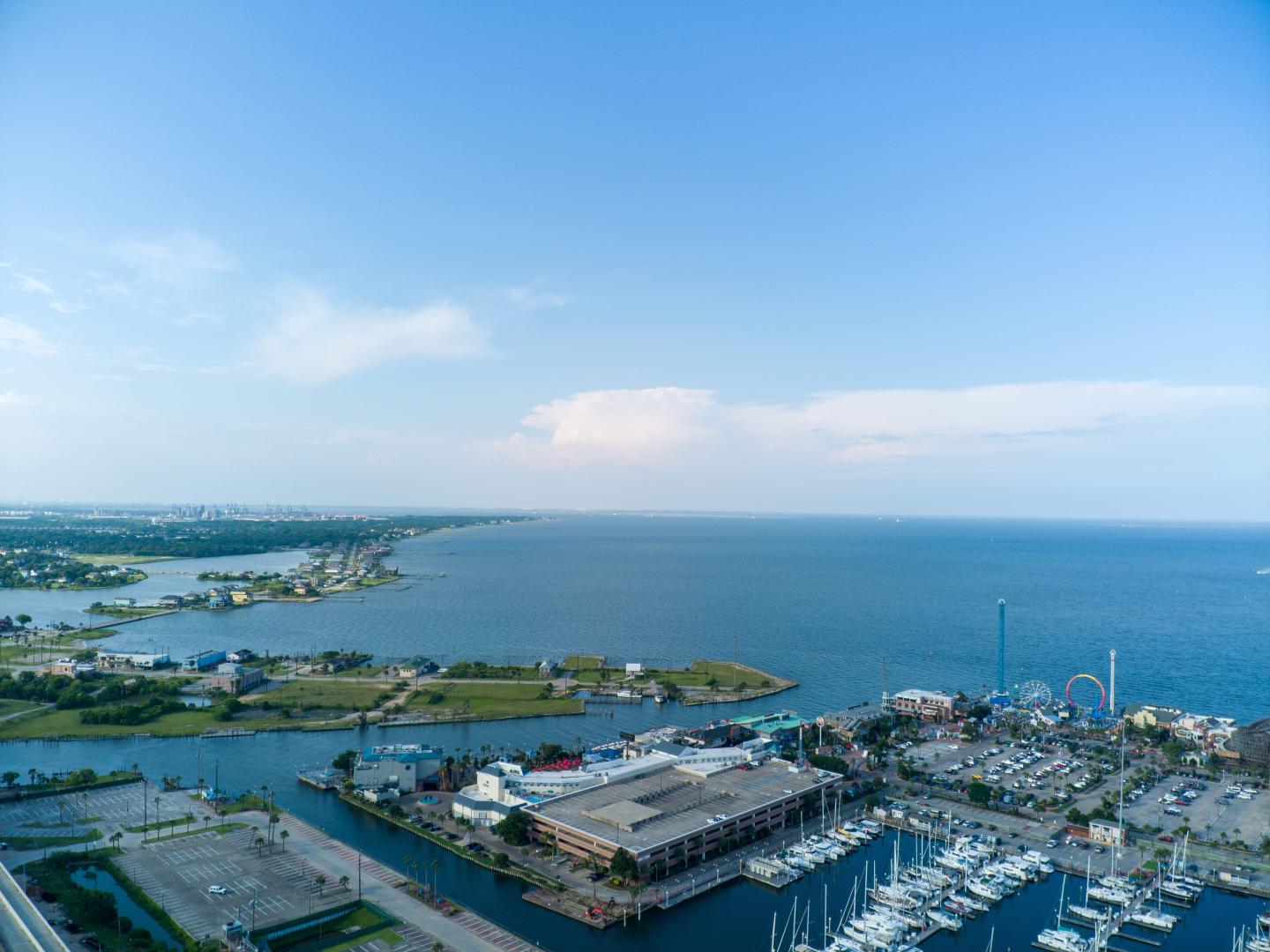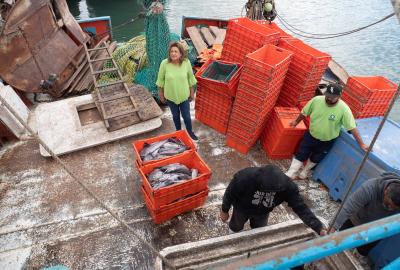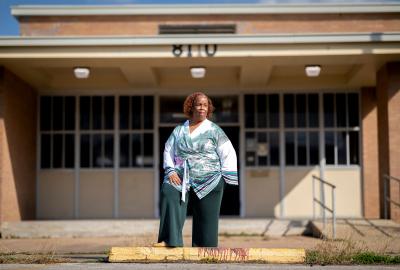Meet Lamont Taylor, champion of change
The veteran civil rights activist now works to protect his Texas community from environmental injustice.
This piece is the first in Vital Signs’ new Champions of Change series, featuring inspiring local activists working to create a better future for their communities.
In 1963, 11-year-old Lamont Taylor was spending the summer with his grandparents in Vicksburg, Mississippi, when he learned that civil rights leader Medgar Evers had been shot and killed in a racist attack. Evers had started speaking out against racism after he was turned away from a Mississippi election at gunpoint.

That moment, recalls Taylor, sparked something inside him — a desire to be a catalyst for change. He began helping his great-grandfather, a local mail carrier, register people to vote.
“My great-grandfather took the census, so he knew everyone,” Taylor says. He also knew who couldn’t read, so he’d send Taylor over to help families understand important notices that arrived in the mail so they wouldn’t be disenfranchised.
Taylor, now 72, has been a lifelong civil rights activist. In recent years, he has turned his attention to fighting environmental racism, a legacy of segregation in which land-use decisions intentionally concentrate polluting industries in communities of color.
With a master’s degree in urban planning, Taylor is acutely aware of how land-use decisions affect communities. He has also experienced environmental racism first-hand as a resident of Hillcrest, a primarily Black and Hispanic neighborhood in Corpus Christi, Texas.
Taylor helps lead the Hillcrest Residents Association, a nonprofit which aims to preserve Hillcrest’s rich history — the neighborhood is home to three 150-year-old historically Black churches — by educating residents about environmental hazards and organizing to stop polluting industries from encroaching further on the neighborhood. In 2006, the group successfully stopped a sewage treatment plant from coming into the neighborhood, which is surrounded by refineries. He’s also co-chair of the Citizens Alliance for Fairness and Progress.
(Conversation has been edited for length and clarity.)
What are you working on right now?
My home, Hillcrest, is a historically Black neighborhood in Corpus Christi that’s been chipped away by industry. We’re trapped between oil refineries and highways, and it’s a constant struggle to keep more industry from coming here.

Right now, we’re trying to stop the city from approving the construction of a water desalination plant inside Hillcrest that would dump its excess salt into Corpus Christi Bay. The city wants water to sell to industry, which would attract even more petrochemical refineries to come here. Unlike other desalination plants, this one would be in a closed bay system, and the salty brine discharge from the process would be put right back into the bay, versus piping it offshore into the Gulf of Mexico.
The amount of salt the plant plans to dump into the bay would be an environmental disaster. It would kill aquatic species by depriving them of oxygen. Doing that will kill the bay, and the tourism we depend on. They’re selling me and the other citizens of Corpus Christi out.
What motivates you to do this work?
I feel the need to make sure people are not ignorant of what’s going on. I’m trying to help my community understand that the fresh water produced by this plant isn’t going to be their water.
It’s going to be for industry. And that means more polluting petrochemical facilities.
I want people to understand that if our community is replaced by industry, our history is gone. No one will know that Hillcrest was a Black community, and the stories of the Black leaders who molded and shaped Corpus Christi will be lost.
Also, we have beauty here. We have majesty here. These used to be pristine waters teeming with fish and fowl… but all that God has provided us is being exploited for greed.
What do you need? How could people reading this help you?
We need more voices telling the city council to stop this desalination plant.
We’ve already challenged the plant’s permit application with the Texas Commission on Environmental Quality and asked for an environmental justice review and protections for the aquatic species in the bay. We have also filed a Title VI complaint that’s being investigated by the Justice Department.
What’s your biggest struggle?
Making sure that people do not give up hope.
This week marks Juneteeth in the U.S., the day that word finally got to Texas that slavery had been abolished. How do you think environmentalists should commemorate Juneteenth?
Think about how you might be contributing to environmental racism in the things you buy.
Gasoline is a good example. Do you think about the way oil refineries poison communities like mine every time you buy gas? Would you consider getting an EV if you did?
This Juneteenth, I urge people to be cognizant of what they buy and how it affects others.


